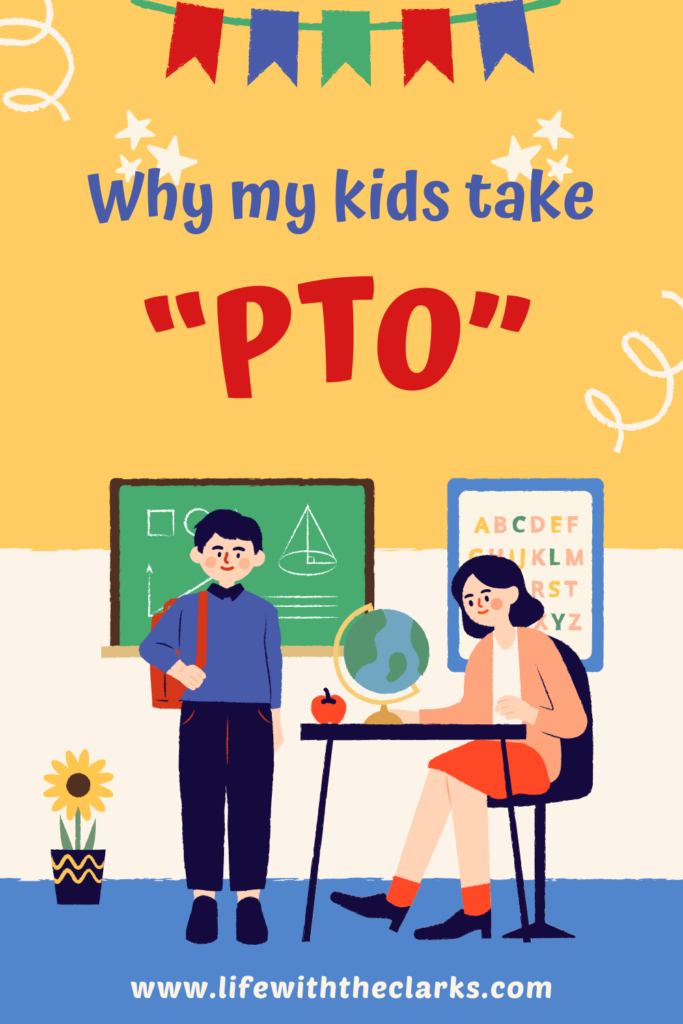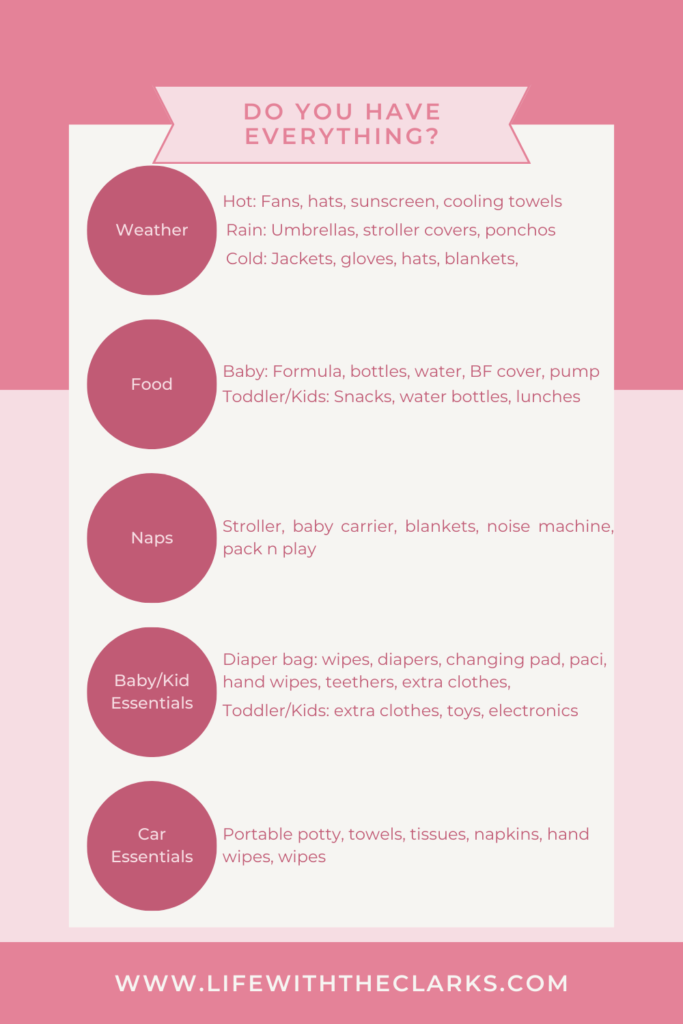First and foremost, my kids’ education is extremely important to us but in our house, perfect attendance is not something we stress too much about. Striving for perfect attendance in school can inadvertently promote a mindset that prioritizes attendance over overall well-being. While regular attendance is crucial for academic success, it’s equally important to recognize that children may occasionally need days off for rest, recovery, or personal matters. Encouraging perfect attendance could lead to children attending school when they are unwell, potentially spreading illness to others or hindering their own recovery. Additionally, it’s vital for children to learn that taking breaks when needed is a normal part of life, fostering a healthier attitude towards self-care and balance. By prioritizing overall health and well-being over perfect attendance, we hope that we are empowering our children to prioritize their physical and mental wellness while still placing value on their education.
So, how do we make this work for us?
We have four kids and my husband works half the weekend, so it can be difficult to ensure that we’re spending enough time together as a family or taking our kids out for one-on-one dates. Obviously no one is paying our kids to take time off but they are allotted a certain number of days out of school during the year. We decided we’d look at those allotted days like an employee’s paid time off. We do take into consideration there should be days available for the inevitable illness but we don’t worry about taking the kids out of school for a family activity here and there. Doing so has freed us of some of the stress around scheduling family activities and dates with our kids on the weekends. My husband took both our older kids to Disney earlier this year for one-on-one dates and one of those dates was on a Monday. Last December my mom was in town, and she took my foodie oldest daughter to Epcot on a Tuesday to explore and try the yummy food during the International Festival of the Holidays. In 2022, my husband took our older kids to Legoland during the week to celebrate our son’s 6th birthday.
You can see we don’t do this very often but by embracing the occasional personal day for our children acknowledges the importance we place on their overall well-being and our relationship with them. I will say, we have never encountered a situation where one of our kids has asked to stay home for the day just because. We typically don’t entertain the “I don’t want to go to school” complaints at this age. However, our hope is that by allowing them to take the occasional time off we are empowering them to prioritize self-care and balance in their lives.
Allowing your child the occasional time off from school can be valuable from a mental health aspect, too. Just like us parents, children may be stressed and overwhelmed by their day to day lives, and a day of rest and relaxation at home may be just what they need to feel better. Regardless of the reason you let your child stay home, it’s important to keep in mind the following:
1. Know your child’s school’s attendance policy.
You need to know how many excused and unexcused days your child is allowed to be out of school. You’ll want to account for sick days and know how many days your child has already been out of school. My daughter was out of school for a full five days last year due to the flu so I try to keep in mind that an illness could, unfortunately, last an entire school week.
2. Check in with your child’s teacher.
Before planning a day out of school for our kids we check in with their teacher to find out what is going on in the classroom that day. We typically avoid planning days off when one of our kids has a test or other important activity going on. For example, my son’s Disney day earlier this year had to get rescheduled because they had a test in class on the day we were considering.
3. Plan ahead.
Most of us don’t have the flexibility to call out of work the day before we want to be off. So, while you’re checking in with your child’s teacher, determine the best day for you to be off as well. It might be your typical day off if you have a weekday off, like my husband, but if you work Monday through Friday, evaluate your week’s rhythms, deliverables, and projects before selecting your day off. Also consider where you’re going. When my husband took our kids to Disney, I suggested going on a Sunday because there isn’t the same amount of traffic to Orlando like on a workday. He took our oldest for her date on a Sunday and then our second oldest on a Monday but decided to stay later at the park to avoid rush hour traffic leaving Orlando.
If this concept is for you and you decide to take a day off with your child, I hope you have a great time making those memories together!



